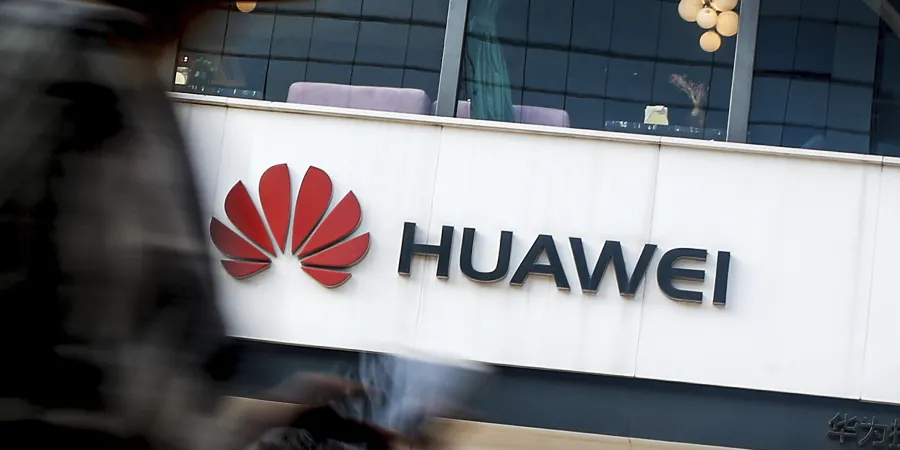Report: Huawei Employees Helped African Governments Spy on Opponents
An investigation by the Wall Street Journal claims Huawei technicians helped the Ugandan and Zambian governments spy on political opponents, leading to their arrest
IsraelDefense
| 15/08/2019
Huawei employees have assisted governments in at least two African countries of spying on political opponents, according to a Wall Street Journal investigation.
In Uganda, Huawei employees have allegedly helped the country’s cyber-surveillance unit break into a WhatsApp group belonging to Bobi Wine, a political opponent of President Yoweri Museveni. Authorities supposedly used the data obtained from the WhatsApp group to thwart plans for street rallies and arrested Wine and dozens of his supporters.
In Zambia, Huawei technicians reportedly helped the government access the phones and Facebook pages belonging to bloggers who oppose Zambian President Edgar Lungu's regime. This allowed the Zambian authorities to locate the bloggers' locations, which led to their arrest.
In both cases, the Journal’s report that Huawei helped those governments to spy on their political opponents were corroborated by senior security officials.
There was no evidence that the Huawei employees who helped the Ugandan and Zambian government allegedly spy on their opponents acted on behalf of Huawei or the Chinese government, nor did Huawei or China know about the employees’ actions, according to the Journal.
The WSJ initially reported that the Huawei technicians working in Uganda’s police headquarters office used Pegasus spyware made by Israeli company NSO Group.
NSO strongly denied the claim, saying that it has never worked with Huawei, forcing the Journal to amend the report to state that the software used in the hacking was “Pegasus-like spyware” created by unknown parties.
“The WSJ article is wrong. And we told them that very clearly when they asked us. We don’t work with Huawei at all. We don’t do business with Uganda at all. And only NSO sells Pegasus – no one else does,” the company said in a statement to CNBC.
Huawei also denied any involvement, telling CNBC that the company has “never been engaged in ‘hacking’ activities.”
[Sources: CNBC, Business Insider, SiliconAngle]
An investigation by the Wall Street Journal claims Huawei technicians helped the Ugandan and Zambian governments spy on political opponents, leading to their arrest
Huawei employees have assisted governments in at least two African countries of spying on political opponents, according to a Wall Street Journal investigation.
In Uganda, Huawei employees have allegedly helped the country’s cyber-surveillance unit break into a WhatsApp group belonging to Bobi Wine, a political opponent of President Yoweri Museveni. Authorities supposedly used the data obtained from the WhatsApp group to thwart plans for street rallies and arrested Wine and dozens of his supporters.
In Zambia, Huawei technicians reportedly helped the government access the phones and Facebook pages belonging to bloggers who oppose Zambian President Edgar Lungu's regime. This allowed the Zambian authorities to locate the bloggers' locations, which led to their arrest.
In both cases, the Journal’s report that Huawei helped those governments to spy on their political opponents were corroborated by senior security officials.
There was no evidence that the Huawei employees who helped the Ugandan and Zambian government allegedly spy on their opponents acted on behalf of Huawei or the Chinese government, nor did Huawei or China know about the employees’ actions, according to the Journal.
The WSJ initially reported that the Huawei technicians working in Uganda’s police headquarters office used Pegasus spyware made by Israeli company NSO Group.
NSO strongly denied the claim, saying that it has never worked with Huawei, forcing the Journal to amend the report to state that the software used in the hacking was “Pegasus-like spyware” created by unknown parties.
“The WSJ article is wrong. And we told them that very clearly when they asked us. We don’t work with Huawei at all. We don’t do business with Uganda at all. And only NSO sells Pegasus – no one else does,” the company said in a statement to CNBC.
Huawei also denied any involvement, telling CNBC that the company has “never been engaged in ‘hacking’ activities.”
[Sources: CNBC, Business Insider, SiliconAngle]



